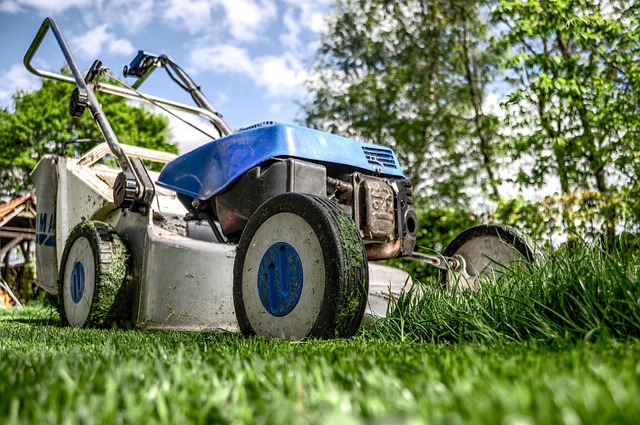Yard waste removal and recycling are pivotal practices for environmental conservation, diverting organic matter from landfills and reducing methane emissions. By composting grass clippings, leaves, and kitchen scraps, these initiatives transform waste into nutrient-rich humus for soil enrichment, obviating the need for synthetic fertilizers. Municipalities and organizations provide collection services to facilitate this process, which also supports local ecosystems and biodiversity. Beyond composting, yard waste can be repurposed as mulch or converted into energy via biomass processes. These programs encourage sustainable land stewardship and offer educational support for homeowners and landscapers. Adopting these practices helps individuals mitigate climate change, preserve natural resources, and foster a synergy between ecological management and environmental conservation. Yard Waste Removal and Recycling efforts are thus integral to creating a more sustainable environment.
Engaging in sustainable yard maintenance not only nurtures a thriving garden but also supports environmental health. This article delves into eco-conscious practices, emphasizing the importance of yard waste removal and recycling, composting organic matter to enrich soil, and adopting landscaping techniques that minimize waste. Discover how local yard waste collection programs and community composting initiatives contribute to a greener planet, and learn to transform your yard maintenance into an opportunity for sustainability.
- Embracing Sustainable Practices in Yard Maintenance: The Role of Yard Waste Removal and Recycling
- Composting Organic Matter: Enhancing Soil Health Naturally
- Implementing Eco-Friendly Landscaping Techniques to Reduce Waste
- Utilizing Local Yard Waste Collection Programs and Community Composting Initiatives
Embracing Sustainable Practices in Yard Maintenance: The Role of Yard Waste Removal and Recycling

Integrating sustainable practices into yard maintenance is a pivotal step towards environmental stewardship. Yard waste removal and recycling play a crucial role in this endeavor by diverting organic matter from landfills and returning nutrients to the soil. Composting grass clippings, leaves, and garden trimmings not only reduces the volume of waste but also creates a valuable resource for gardening, thus minimizing the need for synthetic fertilizers. Municipalities and private organizations often provide yard waste collection services, which facilitate the composting process at larger facilities. These services ensure that organic materials are processed into rich humus, which can then be used to enrich the soil on both residential and community gardens, thereby supporting the growth of healthy plants with a natural fertilizer. By adopting this sustainable practice, communities can reduce their environmental footprint while fostering local ecosystems and enhancing biodiversity.
Furthermore, implementing yard waste removal and recycling programs can have additional benefits beyond composting. Chipped wood and brush can be repurposed as mulch or even as a renewable energy resource through biomass conversion. The act of thoughtfully managing yard waste not only promotes ecological balance but also exemplifies responsible land stewardship. Homeowners and landscapers are encouraged to participate in these programs, which often offer educational resources on the best practices for sustainable yard maintenance. By doing so, they contribute to a larger network of individuals committed to preserving natural resources and promoting a greener, more sustainable environment.
Composting Organic Matter: Enhancing Soil Health Naturally

Yard waste removal and recycling play a pivotal role in sustaining the health of our ecosystems. Instead of sending organic matter to landfills, where it decomposes anaerobically and produces methane, a potent greenhouse gas, homeowners can engage in composting as a natural method to enhance soil health. Composting not only diverts yard waste from landfills but also creates a nutrient-rich medium that supports plant growth and improves soil structure. This process begins with the collection of organic materials such as leaves, grass clippings, fruit and vegetable scraps, and coffee grounds. These materials are then decomposed by a mix of aerobic bacteria and fungi, which break down the organic matter into humus, a crumbly, dark-colored, and nutrient-rich soil amendment. The resulting compost enriches the soil with essential nutrients, improves its water retention capabilities, and encourages beneficial soil microorganisms, all of which contribute to a more resilient landscape and reduced need for chemical fertilizers. Implementing a composting system in your yard waste management routine not only promotes sustainability but also fosters a healthier garden or lawn, showcasing the interconnectedness between ecological practices and environmental stewardship.
Implementing Eco-Friendly Landscaping Techniques to Reduce Waste

When managing yard maintenance with a view towards sustainability, implementing eco-friendly landscaping techniques is paramount. Yard waste removal and recycling play pivotal roles in this endeavor. Traditional yard waste disposal often involves sending organic matter to landfills where it decomposes anaerobically, producing methane, a potent greenhouse gas. To counteract this, homeowners can compost organic materials such as leaves, grass clippings, and garden trimmings. This not only reduces the amount of waste sent to landfills but also creates nutrient-rich soil amendments that enhance plant growth and soil health. Additionally, utilizing mulch made from yard waste helps to suppress weeds, retain soil moisture, and improve soil quality over time.
Furthermore, incorporating native plants into the landscape can significantly reduce the need for supplemental watering and fertilization, as these plants are naturally adapted to local soils and climate conditions. Another sustainable practice is to use edge trimmers selectively, preserving beneficial insect habitats along garden edges. Moreover, when tree branches or larger yard waste needs removal, opting for professional services that chip and repurpose this material into mulch or wood chips can further minimize waste. By adopting these eco-conscious landscaping practices, homeowners can make a tangible impact on reducing yard waste and promoting a more sustainable environment.
Utilizing Local Yard Waste Collection Programs and Community Composting Initiatives

Yard maintenance practices can significantly impact the environment, making it crucial to adopt sustainable methods. One such approach is to leverage local yard waste collection programs, which are designed to divert organic matter from landfills and return nutrients to the soil. These programs often collect grass clippings, leaves, branches, and other yard waste directly from residents’ homes, facilitating the recycling of these materials into compost or mulch. By participating in these services, homeowners contribute to a healthier ecosystem while also receiving the benefits of compostable material for their gardens. This not only promotes soil health but also reduces greenhouse gas emissions that would otherwise result from the decomposition of organic matter in anaerobic conditions.
In addition to yard waste removal programs, community composting initiatives play a pivotal role in sustaining local environments. These initiatives encourage residents to collaboratively compost organic waste, which not only reduces the volume of waste sent to landfills but also creates nutrient-rich compost for communal or personal garden use. Composting initiatives often include educational components that teach best practices for composting, ensuring that the process is carried out effectively and safely. By engaging with these programs, communities can foster a sense of shared responsibility towards environmental stewardship, while also providing a valuable resource for gardening and landscaping. These initiatives are a testament to the power of community action in promoting sustainable living and responsible yard maintenance.
Integrating sustainable practices in yard maintenance is a commendable step towards environmental stewardship. By prioritizing yard waste removal and recycling, homeowners can significantly reduce their ecological footprint. Composting organic matter not only enriches soil health naturally but also minimizes methane emissions from landfills. Embracing eco-friendly landscaping techniques further contributes to this initiative by lessening waste generation. Leveraging local yard waste collection programs and community composting initiatives can amplify these efforts, fostering greener spaces and healthier ecosystems. These practices collectively underscore a commitment to sustainability in our backyards.






